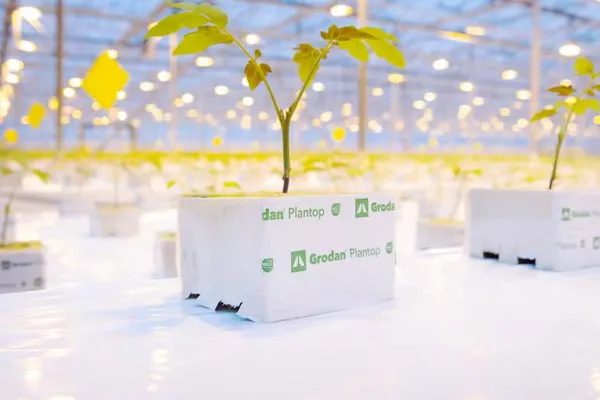Grodan and Rockwool recently approved plans to electrify two production lines in Roermond, in the pursuit of the company's science-based CO2 emission reduction targets by 2034 and its net-zero emission target by 2050.
Rockwool will convert two of its Roermond production lines to use electric melting technology based on low-carbon electricity. Upon completion, they expect CO2 emissions to fall by as much as 80 percent for these two lines and by more than half for the factory overall.
The conversion to the electrified melting processes is expected to be completed in the period 2025-2027. The technical work is already well underway, as is the public utility work to expand the grid connection capacity at the Roermond factory, the process for which we initiated several years ago.

"We are proud of the significant contribution that the electrification of both lines makes to our efforts to achieve the climate goals," said Jos Dumoulin, Technical Director at ROCKWOOL. "This accelerates our journey to reduce our carbon footprint and strengthens our market position as a sustainable company."
The implementation of this technology is carried out with the support of the Top Sector Energy Subsidy of the Dutch Ministry of Economic Affairs.
"For Grodan, this electrification is a big step to reduce the footprint of our stone wool growing media," says Hub Janssen, Managing Director at Grodan. "Within Controlled Environment Agriculture (CEA), our stone wool growing media today already substantially reduce the use of resources such as water in the cultivation process. The electrification further minimizes the stone wool growing media footprint, making this an even more viable substrate of the future".
For more information: Grodan
Grodan
www.grodan.com










